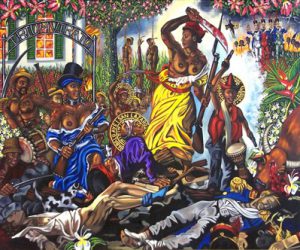
by Mauricio Jiménez Hernández and Mario Alberto Naranjo Ricoy
We have created a blog of postcolonial poetry as a final project. It can be consulted in the following link: https://postcolonial.poetry.blog/.
This blog is the digital platform that brings together poetry and fragments of texts by different authors, as well as original texts that share contents related to colonialism, the social conditions it provokes and a decolonial reflection. The entries and contents are sorted by labels and categories. The formats and topics are diverse, hybrid and flexible, so as to allow us to weave a network of significant content, not hierarchical or systemic, but delocalised and heterogeneous. The objective is to create a place to rehearse expressive forms and postcolonial and decolonial cultural interpretations.
The entries made so far include poems in different languages and translations of M. Darwish, Amilcar Cabral, José Mario Pinto de Andrade, Pablo Neruda, Mario Benedetti, José Emilio Pacheco, Rainer María Rilke, among others. They also include our notes and reflections, as well as an incipient postcolonial poetic manifesto. All the entries are illustrated with images related to the topics that each one deals with, such as the own identity and the violence that implies a colonial situation and the struggle of the subjects to overcome their condition of oppression. Some of these images are organized in a virtual gallery that includes pictures of the Palestinian painters Sulaiman Mansour and Ismael Shammout, of the Mexicans Diego Rivera and Rufino Tamayo, as well as portraits and photographs of the poets, among other images. Here we put one of them, which is also the cover image of our blog. The painting is by L. Bernard and is titled “Carlota leading the slaves in Matanzas”. The painting is a re-appropriation of the famous oil painting Freedom guiding the peopleby Eugene Delacroix. The protagonist of the painting is Carlota, a woman who was a Lucumí-Yoruba fighter who led the slave rebellion in Cuba during the second half of the 19th century.